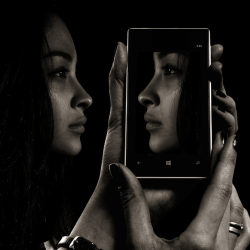On paper there is a gulf a mile wide between truth and lies and in that space is a grey-coloured ocean of nuance and context
What do you think of my new haircut? Did you like my parents? Is Father Christmas real? And, closer to home, did my presentation lose us that pitch? Does the team like me? If we all walked around speaking our truth it would be chaos. We’d be a society of lonely, isolated and insecure people all painfully aware of what everyone else really thought of us.
The word ‘lie’ suggests deliberate deception, covering your tracks or keeping yourself out of trouble, but behind every lie there is a motivation. I’d wager most people reading this have a pretty decent moral compass and do not set out to cause pain and suffering through their behaviour.
But we will all flavour the truth slightly here and there, seek the positives from a bad situation or simply omit some of our more brutal opinions. But lying by omission is not the same as a bold-faced lie.
If social media has made liars of us, it is only by omission. People present their rose-tinted version of reality, the version of themselves they’d prefer. Filters have only added to that, creating unrealistic images, but at this stage in the Instagram lifespan it is the hope that more and more people are savvy enough to spot a filter or understand they are not seeing the full picture, and the only person the poster ends up lying to is themselves. Digitally enhancing your face so you look 15 years younger is lovely until you meet someone in the flesh and the reality is all too clear.
However, as with any lie it is when it gets out of control that it becomes a bigger problem
Our personal social media profiles allow us to paint a perfect picture, which prompts others to try and reflect that by creating their own perfect version of life in some, rather sad, game of digital one-upmanship. It’s when we start to believe this exaggeration (let’s not call it a lie) that we come unstuck. There is much debate around social media’s toll on people’s mental health and I would say as much as that comes from viewing these curated lives of people we follow, it is also in part down to the people starting to buy into their own facade.
Social media is essentially a modern day version of a person selling themselves to an audience — because what is this if not a form of DIY marketing — so surely we must naturally trace the blame back to our own profession.
Anyone selling a tangible product will always make an ad showing their own perfection — the supermarket’s raucous Christmas gatherings, the holiday company’s laughing poolside families, the car manufacturer’s clear open mountain roads. None of it is a reality the majority recognise but still we have, for decades, subconsciously bought into the rhetoric.
But I sense a sea change among advertisers
Maybe it’s the cynicism of the British audience that means marketers must start from the point of shifting them away from the conviction that it’s too good to be true. Or perhaps we’ve created such an unreal perception of the world that we need to take a step back. Either way brands have clocked that (discerning) people no longer relate to this ideal.
As a result they are focusing on being authentic, trustworthy and true in order to breed loyalty and advocacy from audiences tired of being taken for a ride.
But where marketing was once a profession that spun its own web, that is a baton that has now been passed to the media and it is here where social media becomes a more sinister bedfellow. Sides are taken, angles are adopted and a readership becomes convinced of a set of ‘facts’ the flames of which are then fanned by social media. These contrast enormously to the facts being peddled by another outlet, resulting in a conflict between two sides and, in the space of a decade, we have declined into the most bitter of positions all thanks to lies motivated by an agenda.
Blame Brexit, blame Trump, blame Partygate and, yes, blame social media. But the buck must stop with those people who are responsible for influencing public opinion.
And that, I’m afraid, is the media and marketing industry.
Featured image: Christian Palmer / Unsplash































